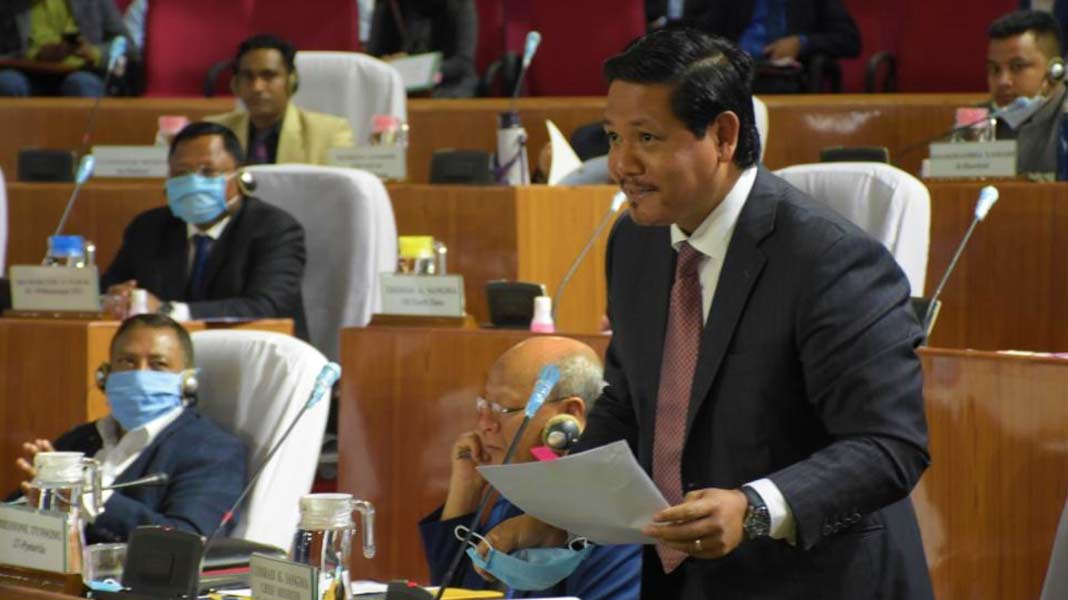Assembly introduces the Meghalaya Right to Public Services Bill, 2020

Government servants are liable to pay penalty and compensation of Rs 5,000 up to Rs 20,000 if they fail to provide time bound services to the citizens, according to the Meghalaya Right to Public Services Bill, 2020.
The Bill was tabled by the Chief Minister, Conrad K Sangma during the autumn session of the state Assembly, which got underway on Thursday.
“The government intends to enact a law to provide for time bound delivery of the services to the citizens in the state of Meghalaya including liability of the government servant in case of default to deliver service to citizens,” Sangma said.
The Bill said every citizen shall have the right to obtain citizen related services in Meghalaya and every designated officer shall be duty bound to deliver services within the time period as notified of this Act.
It said designated officer on receipt of an application for service by any person, without prejudice to the provisions of any law for the time being in force, provide the service or reject the application within the time period.
However, any person who does not receive the required service within the stipulated time period or whose application is rejected may file an appeal tot he Appellate Authority wthin 30 days.
The Bill said where the designated officer does not complly with the direction given by the Appellate Authority, the person aggreived by such non-compliance may file an application directly to the State Public Service Delivery Commission (SPSDC).
“The Commission may impose a lump sum penalty against the designated officer for failure to deliver or render services to which the applicant is entitled. Such lump sum penalty may extend up to five thousand rupees at the first instance and up to twenty thousand rupees for repeated instances which shall be recovered from the officer against whom the penalty has been imposed,” it said.
It said before imposing any penalty, the officer on whom the penalty is proposed to be imposed shall be given a reasonable opprotunity of being hear.
On receiving the order of imposition of penalty, the drawing and disbursing officer or the treasury officer, as the case may be, shall recover the amount of penalty from the salary of the designated officer and deposit the same in the government account and shall send a copy of the challan to the Commission.

Why such an clumsy penalty system is required after all. It shows there high attrition between government and public at all positions. If the people are really need progress, they must embrace truth and honesty first, instead of incurring much more more to correct wrong activities and dishonesty.
At end of the day government can not show the people that there is corrective system to take care, instead must work in right way always without errors.
Every corrective action need money, time, patience, people engagement, resources, all additional. This is direct loss to nation.
Very nice but taking action is the best policy